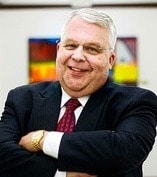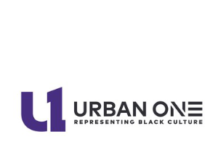
It Was Eat Or Be Eaten
In every issue of Radio Ink in 2016, we’re taking a look back at the 1996 legislation that changed the radio industry. The 1996 Telecommunications Act spawned deregulation, and to this day the debate rages on about whether radio is better off as a result. To this day, some broadcasters think more consolidation is needed, while others believe deregulation ruined the industry. But when the Telecom Act was passed, then-Jacor CEO Randy Michaels was ready to pounce. And pounce he did. Here’s a look back at the Telecommunications Act of 1996 with Randy Michaels.
RI: 1996 was a big year.
Michaels: February 12. I remember — I did the first two deals and took eight stations.
RI: Talk about what you were doing at the time all this was going down.
Michaels: I was CEO of Jacor. We saw it coming. The Telecom bill passed on the 12th. That morning, we announced Noble, which gave us eight stations in Denver. That afternoon we announced Citicasters, which gave us eight stations in Cincinnati. We did not only the first, but the first two eight-station clusters on the day the bill passed. I’m kind of proud of that.
Jacor probably moved quicker than anyone, including merging into Clear Channel, which I then ran, and we got a thousand stations ahead of number two. That doesn’t speak to whether the rule change was a good one. It is just that I understood it, and we moved quickly. When they opened Oklahoma for settling, they only cut the ribbon once. If you wanted to grab a piece of land, you had to go that day. And that’s what we did.
RI: You got the first two deals. Then was it just crazy after that?
Michaels: Sure, it was crazy. In the following year, Jacor closed 52 transactions. That’s not stations, that’s transactions. Noble was 35 stations, that’s one transaction. We closed 52 transactions and had 52 more signed in the 12 months following the Telecom bill. We were active. It was crazy.
RI: Where was the money coming from?
Michaels: Private capital was throwing money at it. Early on, the numbers made tremendous sense. Here’s kind of what happened — I won’t, but I could write a book on this. The multiples ran pretty quickly, because the world realized that this was the biggest deregulation any industry had ever gotten at once.
Initially, you could pay 12-, 13-, 14-times cash flow and make that work pretty quickly, if you were buying, say, eight stations in a market and could consolidate to one facility, one receptionist, one technical staff, one traffic department. You could bring that down to single-digit multiples with cost cuts at closing. What was crazy was that those multiples stayed there. I never understood that. In fact, the reason we sold Jacor was the numbers for fully clustered stations got into multiples that went into the high teens. I never understood it.
So we were sellers, and I still hung in for three years and used Clear Channel’s balance sheet to build out that platform. But the unfortunate thing is that because multiples were irrationally high, companies had taken on too much debt, and that is exacerbating the headwinds that face radio today.
RI: What was the best deal you did during that run?
Michaels: Nationwide.
RI: Why?
Michaels: Because I had worked there, as had Bobby Lawrence, my partner. I was national PD there. Bobby was a manager in Tampa. We knew everybody. We knew the company, and we knew the assets. It was well run. We understood it culturally, and integrating it as our first big acquisition was an easy integration because we knew everybody. It was kind of like going home.
The best deal that we did in terms of return was probably Nationwide. It was a big, old, stodgy insurance company that just spent money on everything, didn’t really focus on sales, had amazing facilities. We paid an infinite number of cash flow, and they didn’t have any. I think we paid $625 million. We got Dallas, Houston, San Diego, Sacramento, Cleveland, Columbus, Orlando — just amazing markets. The stick value of the loan was much higher at the time. The way we were able to trade that around really built Jacor.
RI: What’s the worst deal?
Michaels: Boy, I made some bad ones. I don’t want to talk about them. I never made Regent work a second time. We just could never get Salt Lake City. The Mormon culture and Jacor were not well aligned. Thank goodness, if you look at Jacor’s performance, we grew not through acquisition, but organically, over 30 percent a year. We did pretty well. But we bought some stuff that didn’t work, for sure. Probably Regent was the one I overpaid for.
RI: What do you think about the Telecom Act, when you look at the radio industry now? Good or bad for radio?
Michaels: Reducing something to two dimensions like that — here’s the thing. You step back and look at the world, say between 1970 and 2000. Everything consolidated. 1970, you simply go downtown and there were mom-and- pop stores — hardware stores, drugstores, and clothing stores, and they managed the business and kept the books right there on the premises. Every city kind of had its own local department store.
Everything is consolidated, I don’t care what it is. Insurance, banking, retail — if you look at the degree of consolidation in radio, it’s not remarkable compared to everything else. What is remarkable is how fast it happened. Everything else took 20 or 30 years in order to consolidate. Radio consolidated in 24 months. It was so frothy and so crazy that the debt levels are too high.
Then you get a technology shift where, to some extent, satellite, but primarily Internet distribution of content — and I don’t just mean audio content — starts to compete. If you think about how radio not only survived, but thrived and did better post-television, it was targeting. Stations could target teens, young adults, women, men. An advertiser could buy high frequency against a targeted audience at modest cost and have something effective.
That worked great for radio from 1950 to the ’90s, but a whole bunch of things happened at once. Nothing targets better than the Internet, because that targets individuals. When you go online and look for something odd, you’ll start getting ads for it. That targets you. They are not just targeting 18-34 males, they are targeting you. That’s the sweet spot. Talk about cost-efficient: You only get paid when somebody clicks. Now, there’s click fraud, sure. But that, combined with debt pressure — I am kind of off the topic, but when I look at what some of the major broadcast companies are doing, not because it’s the right thing to do, but because their balance sheets are broken, it makes me crazy.
RI: Why?
Michaels: Are you familiar with barter? When you and I were in radio, barter meant you get lunches and run spots for the restaurant. Or you get a news car and you run spots for the car dealership. Today — I’m not going to mention the guy who started this; he’s not a genius — they’re going in and bartering for share. They say, “Maybe we deserve 30 percent. Give us 50 percent, and we will give you 40 percent free.” OK, they get the share.
But now the planner says, “Well, I wanted 300 points in that market. I can now buy them for a lot less. Thank you very much.” So the market revenue in the big markets, which would be declining anyway in the face of new competition, is in an accelerated spiral because of that. Because of “Less Is More” — tell people, “You can get all of the effectiveness using :30s for 80 percent of the money,” and people say, “OK, here’s 80 percent of the money.”
These are all things driven by people that are trying to service the debt. When you sell your towers to pay rent, that’s a short-term decision because you’ve got debt pressures. So when the leaders in the industry are behaving desperately, that’s not good for an industry at an inflection point. Am I being too provocative?
RI: No.
Michaels: You don’t have to agree with me.
RI: Do you think the Telecom Act is the reason radio’s two biggest companies have all this debt?
Michaels: It’s a result of a lot of dynamics. It was so frothy. The business has been transformed from one run by broadcasters to one run by banks — banks who didn’t really understand what they were getting into. Banks look at a trend line and say, “Oh, that’s the way it’s going. I will buy into that trend line,” without ever realizing.
We’ve seen it a million times, whether it’s the dot-com bubble or the cellphone bubble. Remember when you would look at projections for cellphone sales, and they were going out 10 years, and you’d say, “Wait a minute. This means everybody has 10 cellphones.” You can’t do that. Of course people went crazy when they were introduced. But that line doesn’t go forever.
People looked at the kind of efficiencies that we were creating when you put multiple stations together, and some of the hidden benefits, it wasn’t just costs — I mean, all of a sudden you’re running five FMs and you see every piece of business, when it used to be maybe you didn’t get any. Now you know about everything. Even stations that don’t get on the buy are submitting, and you’re figuring out how to use stations that aren’t sold out to bring in the buy on the station that is sold out.
There was a period of time there when we were figuring out how to run a cluster. The top line swelled, the expenses went down, the cash flow went crazy, and it attracted a lot of money that we didn’t really understand. That dumb money is now trying to get their ass out of a jam. Yes, the fact that it happened that quickly, all at once, was bad for the business and probably bad for the public. People look at me and say, “That was your fault.” All I did was understand the rules. All I did was play the game. I didn’t make those rules.
Do I think the Telecom Act, the way it rolled out, was good for the industry? No. But once it became law, you were either going to eat or be eaten. I would rather eat. I remember the joke at the 1996 NAB convention: “If my boss calls, find out who it is.”








